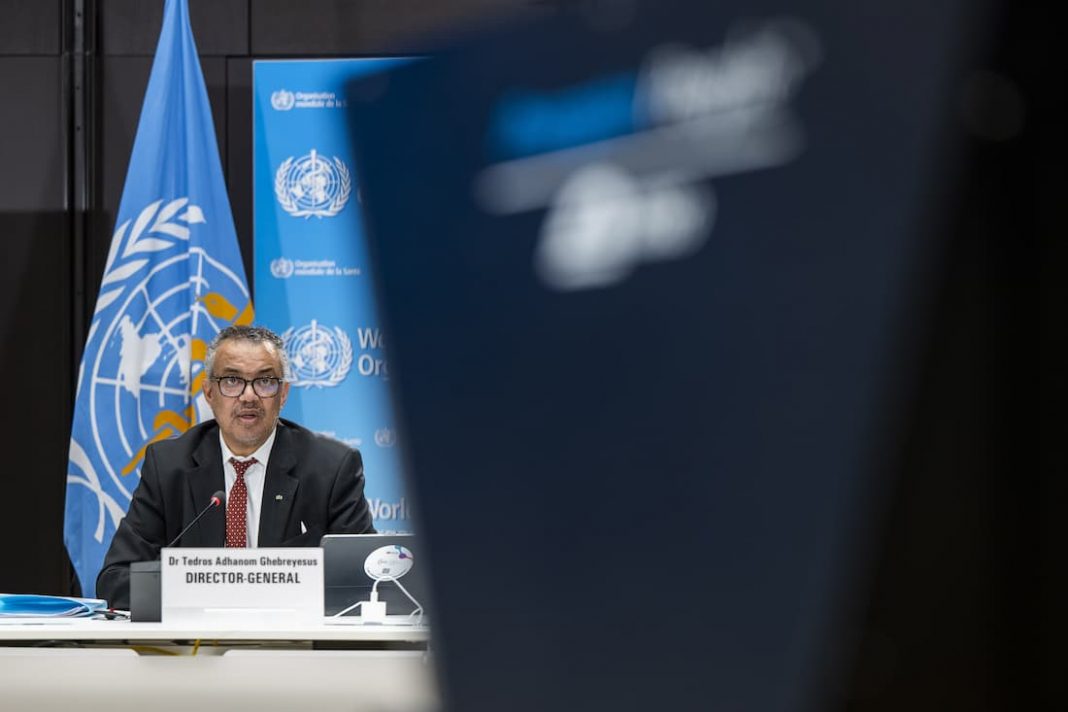COVID-19 no longer represents a global health emergency, the World Health Organisation says, marking a symbolic step towards the end of the pandemic that has killed more than 6.9 million people, disrupted the global economy and ravaged communities.
The WHO’s emergency committee met on Thursday and recommended the United Nations agency declare an end to the public health emergency of international concern, which has been in place for more than three years.
“It is therefore with great hope that I declare COVID-19 over as a global health emergency,” WHO Director-General Tedros Adhanom Ghebreyesus said, adding the end of the emergency did not mean COVID-19 was over as a global health threat.
The WHO’s emergency committee first declared that COVID-19 represented its highest level of alert more than three years ago, on January 30, 2020.
The status helps focus international attention on a health threat as well as bolstering collaboration on vaccines and treatments.
The decision to end the global health emergency status was supported by a majority of the committee, Didier Houssin, head of the agency’s COVID-19 emergency committee, said.
Lifting it is a sign of the progress the world has made in these areas but COVID-19 is here to stay, the WHO has said, even if it no longer represents an emergency.
“COVID has changed the world, and it has changed us. And that’s the way it should be. If we go back to how things were before COVID-19, we will have failed to learn our lessons, and failed our future generations,” Ghebreyesus said.
The death rate has slowed from a peak of more than 100,000 people per week in January 2021 to just more than 3500 in the week to April 24, 2023, according to WHO data, reflecting widespread vaccination, availability of better treatments and a level of population immunity from prior infections.
Ending the emergency could mean that international collaboration or funding efforts are also brought to an end or shift in focus, although many have already adapted as the pandemic has receded in different regions.
“The battle is not over. We still have weaknesses and those weaknesses that we still have in our system will be exposed by this virus or another virus. And it needs to be fixed,” the WHO’s emergencies director Michael Ryan said.
The WHO does not declare the beginning or end of pandemics, although it did start using the term for COVID-19 in March 2020.
“In most cases, pandemics truly end when the next pandemic begins,” Ryan said.
Last year, US President Joe Biden said the pandemic was over.
Like a number of other countries the world’s biggest economy has begun dismantling its domestic state of emergency for COVID-19, which officially ends on May 11, meaning it will stop paying for vaccines and testing for many people and shift responsibility to the commercial market.
Other regions have taken similar steps.
The European Union said in April last year the emergency phase of the pandemic was over and the WHO’s African head, Matshidiso Moeti, said in December it was time to move to routine management of COVID-19 across the continent.
The WHO’s declaration comes just four months after China ended its prolonged severe COVID-19 restrictions and was hit by a big surge in infections.
In many parts of the world, testing has dwindled dramatically and people have largely stopped wearing masks.
In some countries, mask-wearing mandates have resumed during COVID-19 outbreaks.
The WHO published a plan this week advising countries on how to live with COVID-19 long-term.



